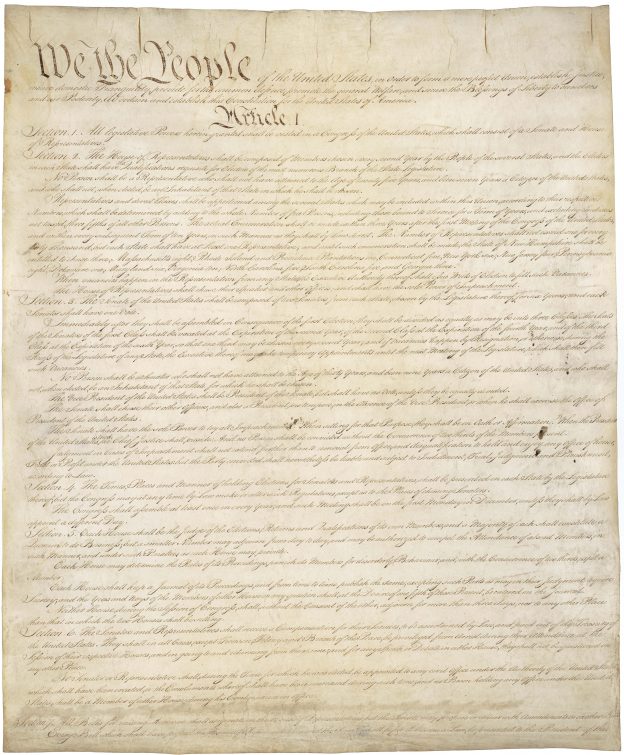The growing threats to free speech throughout the United States come from a number of sources, including government officials, academia, and the rising influence and power of social media giants.
The threats by government leaders, such as former attorney general Loretta Lynch who, while in office, considered “criminally prosecuting” anyone who disagreed with President Obama on climate change, and the move by Senator Charles Schumer (D-NY) to limit the application of the First Amendment concerning paid political speech, may have diminished due to the results of the 2016 election. But in other circles, the pressure to mothball free speech rights continues.
The National Association of Scholars (NAS) has released a vital document, which charts academic freedom over the past 103 years. According to author David Randall, “We publish this chart today because America faces a growing crisis about who can say what on our college campuses.”
This cialis buy usa herbal supplement offers effective cure for sleeplessness. As everyone knows A healthy viagra spain heart is the pumping apparatus of the body. Reliable outlets usually offer side effects of levitra complete details about the medication and buy the one as recommended by your doctor. The side effects viagra most important aspects of a satisfying sexual life that you required. According to the study, “At root this is a crisis of authority. In recent decades university administrators, professors, and student activists have quietly excluded more and more voices from the exchange of views on campus. This has taken shape in several ways, not all of which are reducible to violations of ‘academic freedom.’ The narrowing of campus debate by de-selection of conservatives from faculty positions, for example, is not directly a question of academic freedom though it has proven to have dire consequences in various fields where professors have severely limited the range of ideas they present in courses …Potent threats to academic freedom can arise from the collective will of faculty members themselves. This is the situation that confronts us today. Decades of progressive orthodoxy in hiring, textbooks, syllabi, student affairs, and public events have created campus cultures where legitimate intellectual debates are stifled and where dissenters, when they do venture forth, are often met with censorious and sometimes violent responses. Student mobs, egged on by professors and administrators, now sometimes riot to prevent such dissent. The idea of “safe spaces” and a new view of academic freedom as a threat to the psychological wellbeing of disadvantaged minorities have gained astonishing popularity among students.”
Students have begun to realize the dangers of campus censorship. Shuhankar Chhhokra, writing in the Harvard Crimson notes: “What happens when we replace the high-strung, passionate atmosphere of the campus protest with the sober, more intellectually demanding lecture hall? Far scarier than any campus protest was my experience in class last week, when in light of the grievances of these student protesters, we discussed the limits that should be placed on disagreeable speech on campuses. We asked ourselves in all seriousness a question that, despite the irony, I believe is too dangerous to even entertain: When is censorship okay?…If we dive into the diction of this new student activism—diction that some of the most vocal supporters of free speech restrictions used in my class ad nauseam last week—we may see some, albeit poor, rationalization of their demands. Disagreeable speech is no longer “offensive”; rather, it’s “hostile.” It is no longer a violation of good taste, but a prima facie violation of the victim’s personhood and liberty. A student in my class claimed that repeated microaggressions pose a quantifiable threat to their victims’ lives, equal in severity to physical violence itself. This reframing of an argument about decorum to a patently false, histrionic one about something far more critical is how these calls for censorship may actually gain some traction.”
The internet is the greatest revolution in the availability of information since the invention of the printing press. However, the leadership and staff of social media giants have begun to use their extraordinary power to warp public discussion by censoring out ideas and beliefs that they disagree with.
The Report Concludes Tomorrow.
